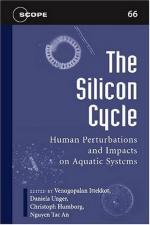|
This section contains 288 words (approx. 1 page at 300 words per page) |

|
In an ecological context, “pollution” means the contamination of the natural environment by human activities. The term commonly refers to the fouling of air, water, and land by wastes such as motor vehicle exhaust, factory discharges into rivers, and roadside litter, but can mean any artificial contamination of an ecosystem. Humans have always created wastes that impacted their environment, but industrialization in the nineteenth and twentieth centuries created new sources and new types of pollution, including artificial chemicals and substances that had potentially severe environmental effects. In the early 1970s, amid mounting public concern over the environment, the U.S. government passed several laws that created the Environmental Protection Agency (EPA), which was empowered to set pollution standards and enforce federal pollution regulations.
Beginning in the late 1980s, writes Environmental Protection Agency official Odelia Funke, the concept of pollution...
|
This section contains 288 words (approx. 1 page at 300 words per page) |

|




